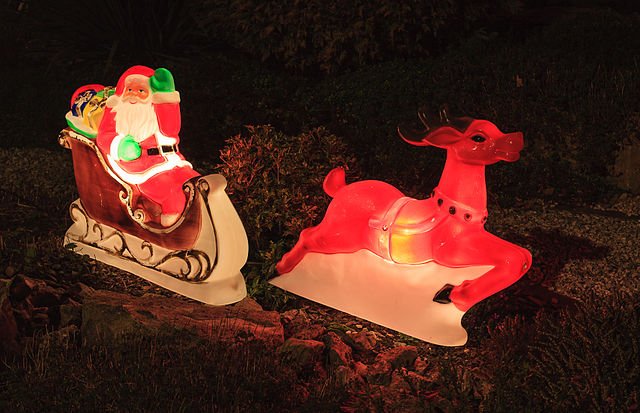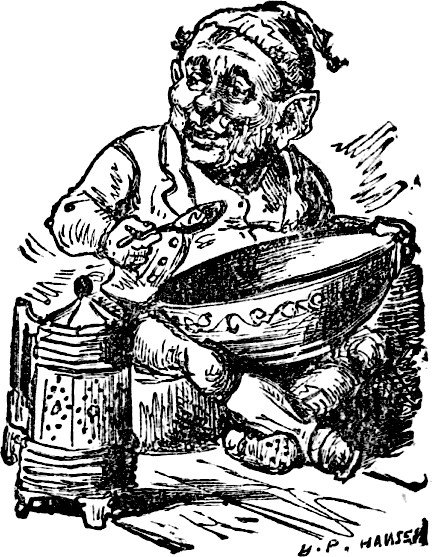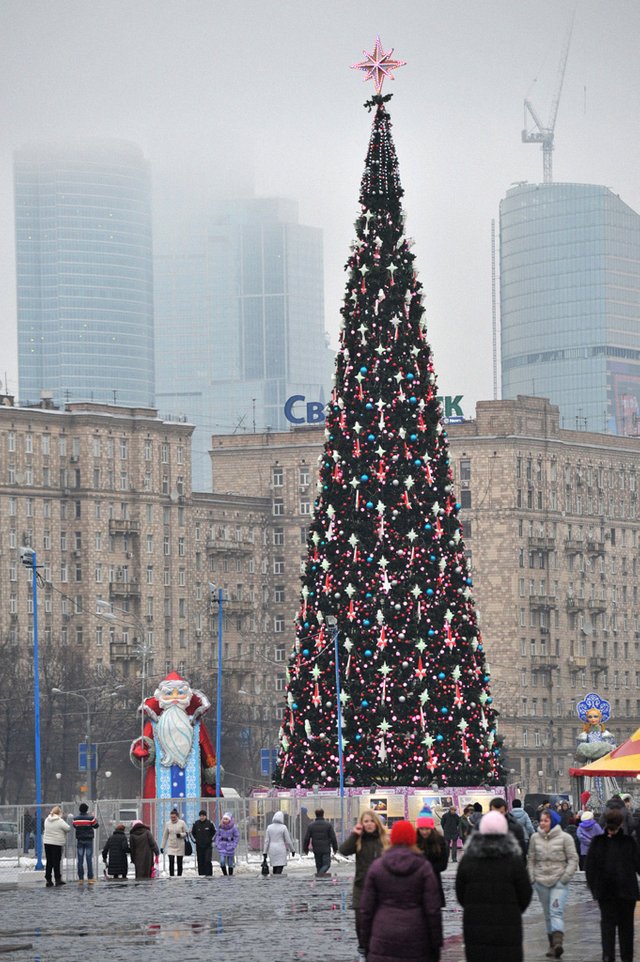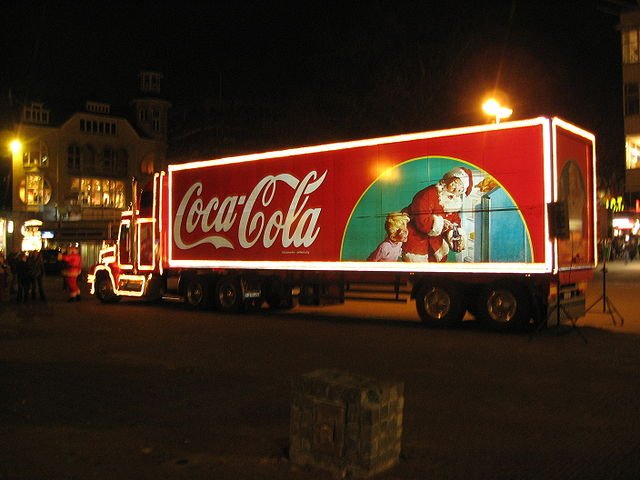It's fine to celebrate Christmas even without being Christian

Yule vs Christmas vs Holidays
I remember some years ago, there was some talks that one shouldn't use the word "Christmas", but rather say "the holidays", not to offend the non-Christian people. I'm an atheist myself, so ... yes, it's a point, I do not like the word "Christmas". I came to think that I'm lucky that the Norwegian word isn't that much religious - "jul" stems from the old pre-Christian celebration, but has been appropriated by the Christians. Roll forward to the end of 2019, and there was quite some fuzz in Norwegian media as it was suggested to use the more neutral terms "tradisjonsmat" (traditional food) and "skoleball" (school prom) rather than "julemat" and "juleball".
The roots of the whole debate was that one local children school had decided (many years ago!) to tone down the traditional school celebration, even going as far as dropping red napkins - the reason being that the school management being concerned about the high rate of people from "some religions" not coming to school in December. One pupil was allegedly corrected by a teacher when using the word "jul", the grandmother got told, she spread it on social media, one journalist in a local newspaper wrote an article about it, hidden behind a paywall - it wouldn't have been noteworthy at all, if it wasn't for some anti-immigrant cheerleaders reading it, spreading it and getting national attention on it. The Muslims are trying to take away our Yuletide! It spread like wildfire in (social) media - from the amount of anger and hate observed in online discussions, it seems obvious that too few has read or seen "How the Grinch Stole Christmas!". The irony of it all - the primary reason the school decided to tone down the usage of the word "jul" was allegedly to include Christians from Jehovah's Witnesses, it had very little to do with the Muslim pupils on that school.
The secular celebration

Old men with red hat, white beard and big tummy, gnomes eating porridge, spruces brought into the living room, gift giving, eating extraordinary amounts of seasonal food, extra much usage of the colors red and green, drinking lots of seasonal beer, taking time off from work, sleeping, meeting up with family, singing seasonal songs ... most of those traditions have no connections at all, or at least very little connections to any religion. I've grown up in an age where most of Norway was Christian, but my mother was an atheist, and so was I. My friends was even surprised, for them Yule was some Christian thing, so how could I get gifts, when I wasn't a Christian? There isn't that much difference between our celebration and the local Christians celebrating it. Some few minor details - my mother denied having a star at the top of the yule tree (but the relationship between the star and the Christian religion is not so super strong, I'm OK with stars personally), we didn't attend church ceremonies, and we avoided the most religious songs. My mother also never pretended there existed such a thing as an old bearded man travelling all over the globe giving away gifts. For her, that would be as silly as pretending there exists a God and that we need to celebrate the birth of Jesus.
I'd also argue that, at least here in the north, the raison d'être for the celebration is secular. It's dark and cold outside. People with an ordinary day job wake up in the darkness, go their workplace in the darkness. In the northern parts of Norway the sun doesn't even get above the horizon, in the southern parts of Norway there may even be some sunshine during the day, but nevertheless ... when the workday is over it's dark again. Most people do get quite tired and some even depressed under such circumstances - we're extraordinary sleepy in the darkest part of the year, some of us are walking around in a zombie-like state barely managing to perform our work tasks at hand. Research on the inuits in the 50s has shown that they were sleeping - I don't remember if it was 12 or 17 hours a day during the dark season, but that's besides the point - we simply need a break from the ordinary, something to look forward for, some days off to relax. Living in the age of artificial light and heat and abundance of food, most of us won't sleep for 12 hours, but what more is there to do except sleeping? Obviously - cooking good food, staying indoors together with family and friends, and eating lots of food.
This secular rationale for the celebration is strongest up in the north - We did have our jólablót celebration in the Viking age, long before Christianity - but most of humanity lives north of the equator, most of us observe some kind of winter, and the midwinter point has been celebrated in many cultures. Perhaps most importantly, the "birth of sun" was celebrated at the 25th of December in the Roman empire.
Appropriation
One should not mess up with traditions and culture - to get people to wholeheartedly stand together it's much better to "steal" and reform the existing celebrations rather than ban the old celebrations and try to come up with new ones. The Church decided to put the celebration of Jesus birth to the same day as the Roman celebration. Similarly, during the Christian reformation of Norway, it was decided that the existing jólablót should be celebrated at that date - but they never managed to mess with the name of the celebration.

One doesn't have to go many hundred of years back in history to see this happening. In 1922, the Soviet Union was established - and with that, state atheism was born. Did they ban the midwinter celebrations? Yes, they tried that in 1927, but ... it was a bad idea. From 1935 on, Father Frost (often depicted with blue rather than red clothes, but nevertheless with a long beard) has been delivering gifts to children on the New Years eve (the character has pre-christian roots, but was rejected in the period 1928-1935, and the current-day depictions of Father Frost are pretty much based on Soviet traditions). The Soviet/Russian New Year holidays "coincidentally" overlaps with their Orthodox Christmas. The Russian Orthodox Church never approved of the Georgian calendar reformation, hence their 25th of December is after our New Year. The celebrations and anticipation for a well-deserved holiday is (at least) as big in Russia as in the Scandinavian countries, and there is quite much cultural overlapping - like, they also drag living trees into their living rooms. And the Coca Cola version of Santa Claus? That's also cultural appropriation, isn't it?

Muslims living in Norway also slowly appropriate the Norwegian jul. They do get vacation from work, and what better to do during those dark, cold days than spending time with their families, cooking good food and eating it? Their children are going to Norwegian schools and participate in quite many of the seasonal activities there. The public spaces and the shops are also full of seasonal specials. Even when visiting the grocery shop it's hard to avoid bringing some seasonal food home ... well, perhaps with the exception of the pork products.
Sources / inspiration / more reading
Wikipedia
Norwegian media
- Faktisk.no - slik oppstod julebråket i Seljord
- NRK Ytring - "Jeg omfavner jula" (skrevet av en Muslim)
- NRK Ytring - "Muslimsk jul"
- NRK Ytring - "Har kristne monopol på julen?"
- NRK korrepsondentbrev fra Moskva - "Hvor går grensa mellom en julepresang og en bestikkelse?"
Image sources/credits
All images taken from Wikimedia Commons:
- Advent lights - Santa Claus with his reindeer sleight - Photo by Oliver Cossalter. CC-BY-SA 3.0
- Gnome eating porridge - an illustration from Christmas Fireside stories, P. C. Asbjørnsen.
- Christmas celebrations on Poklonnaya Hill in Moscow - RIA Novosti archive, image #1012158 / Ruslan Krivobok / CC-BY-SA 3.0
- Coca-Cola Christmas truck Photo made on Vredenburg square, Utrecht, the Netherlands] by Husky
A very interesting post. The winter solstice had always had a significance both in monotheistic and polytheistic societies. Even in a secular environment the effect of the dark short days on our physiology and psychology is hard to deny. The return of longer days is an event worth celebrating in any context.
About the orthodox churches: Not all of them follow the Julian calendar. Bulgarian, Greek and Cypriot churches celebrate Christmas on the 25th, following the gregorian calendar.
I didn't know. Fixed.
Hi @tobixen!
Your post was upvoted by @steem-ua, new Steem dApp, using UserAuthority for algorithmic post curation!
Your UA account score is currently 4.061 which ranks you at #3762 across all Steem accounts.
Your rank has not changed in the last three days.
In our last Algorithmic Curation Round, consisting of 72 contributions, your post is ranked at #41.
Evaluation of your UA score:
Feel free to join our @steem-ua Discord server